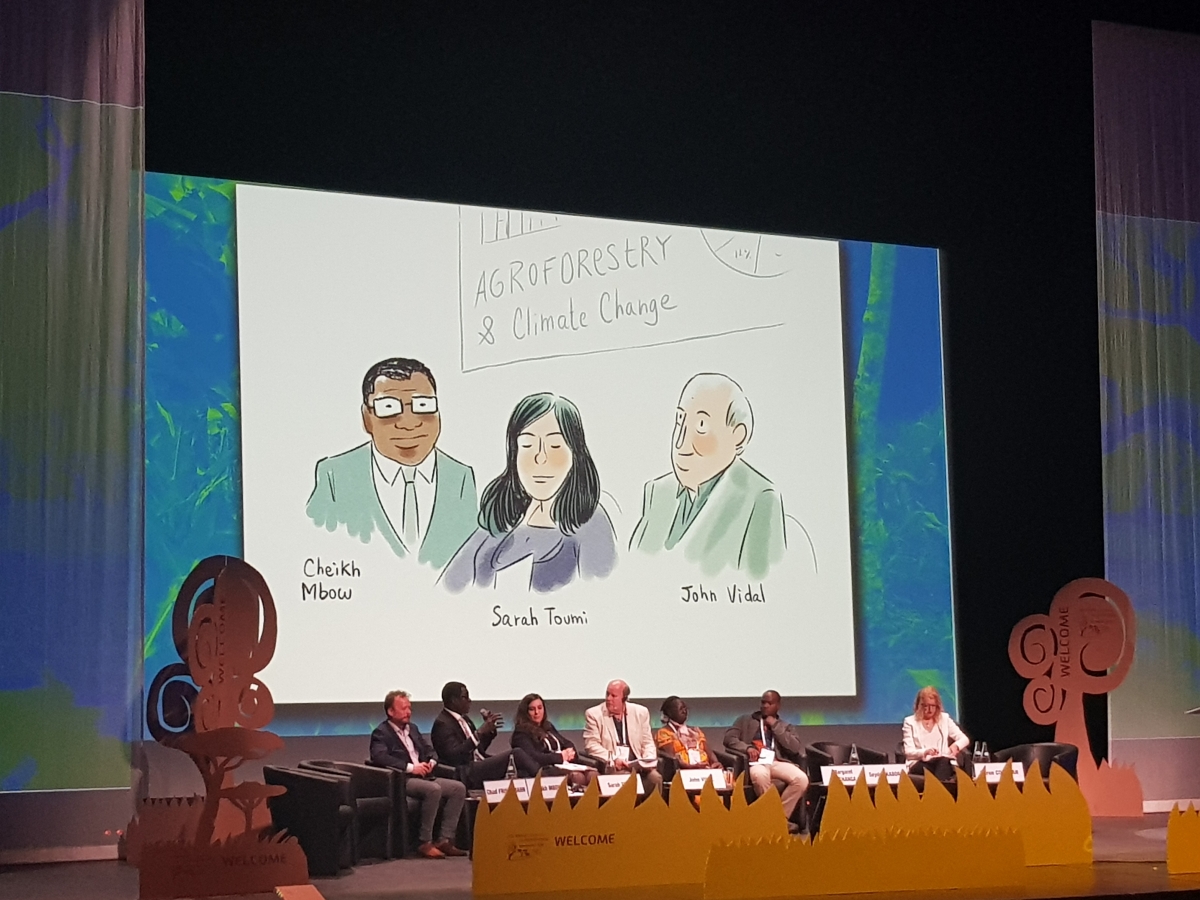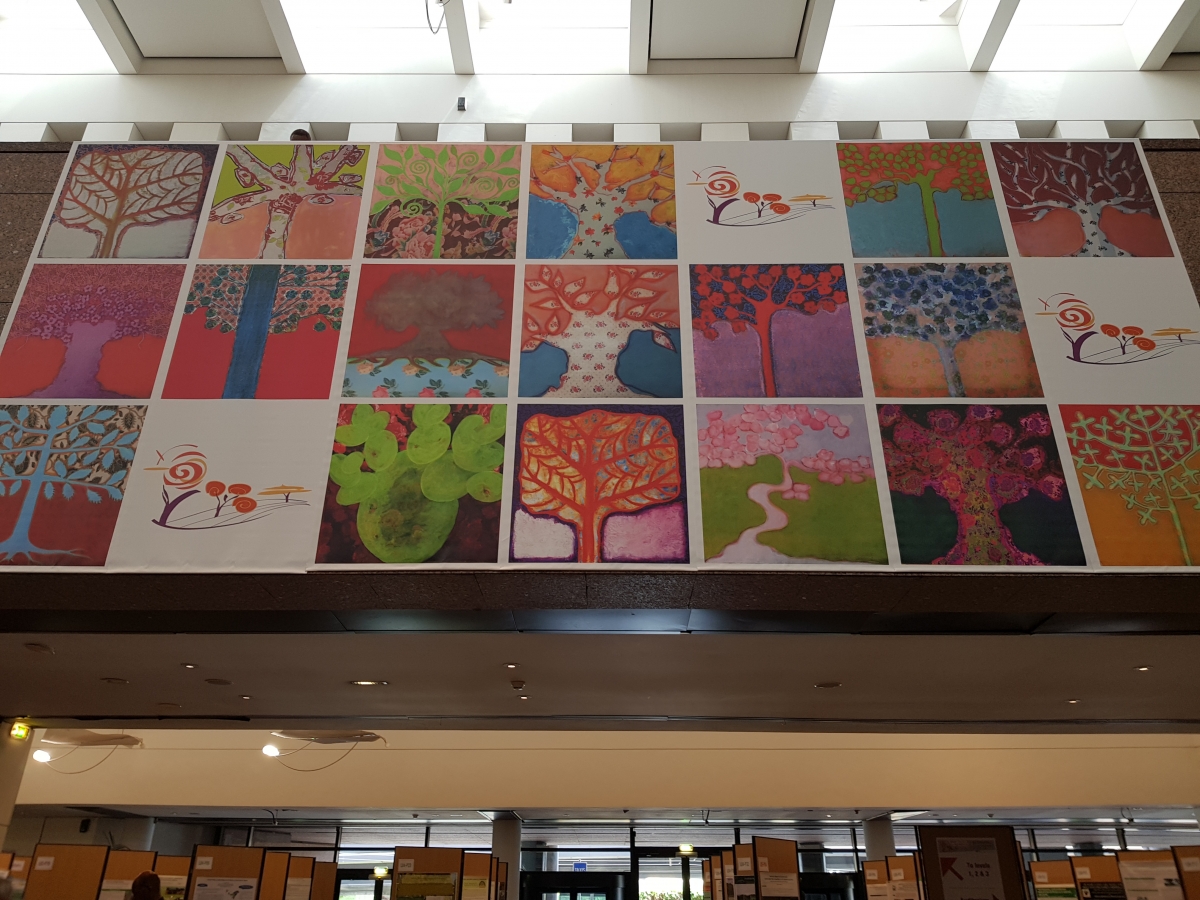Make our planet treed again! - Report on the Agroforestry2019 Congress
I (Monika Varga, YPARD Hungary country representative) had a chance to participate at the 4th World Congress on Agroforestry, organized in Montpellier, France, between May 20-22, 2019. This is a short report and an introduction to the main messages of the conference.
In line with the slogan of the Congress (Make our planet treed again!), the dedicated aims were to spread the word about this important topic, to contribute to the progress of agroforestry science and practice, as well as to bridge the science-policy gap, with the participation of more than 1200 experts from various fields. In spite of the huge number of participants, I think it was an impressive event, with several thematic oral and poster sessions, coupled with diversified side-events and field trips.
A viable solution also in temperate region
Agroforestry, as a concept of combining trees with various agricultural activities, is not a new idea at all, so it is no need to reinvent the wheel, as a keynote presenter stated. Before the intensification of agriculture in the last century, agroforestry was traditional both in tropical and temperate regions.
However, considering the existing and forthcoming challenges, we definitely have to exploit again the positive synergies (shading, sheltering, ecosystem services, etc.) of the collaboration of trees and crops in cultivated parcels, also in temperate countries.
In the most impressive opening presentation, Christian Dupraz from INRA (chair of the scientific committee) highlighted several points from the situation 10 years ago, when agroforestry was not accepted yet, neither by farmers or foresters nor by policymakers in developed countries.
Since then, in line with the present challenges (food and nutrition security under climate change), things seem to have changed. Agroforestry could provide a viable solution for ecological intensification of increasing productivity with keeping long-term ecosystem services, at the same time. Undeniable advantages of this kind of complex systems are the increased resilience, the multifold management options, the diversity of production and, the more flexible adaptability to the changing environmental conditions.
Along with the opening and the plenary sessions, we could enjoy live graphic representation by Julien Revenu, an illustrator from the Occitanie region in France.
It is important to rediscover the possibilities in agroforestry, again!
 Plenary session featured also impressive cases of young leaders from the field. Margaret Muchanga, a young farmer from Kenya introduced her viable home agroforestry system. She mentioned, that in spite of the initial difficulties, for now, her agroforestry plot secures her stability, and also her neighbors come to her farm to learn. We heard another interesting talk from Sarah Toumi, a young entrepreneur from Tunisia, about her initiative to plant trees against desertification and poverty.
Plenary session featured also impressive cases of young leaders from the field. Margaret Muchanga, a young farmer from Kenya introduced her viable home agroforestry system. She mentioned, that in spite of the initial difficulties, for now, her agroforestry plot secures her stability, and also her neighbors come to her farm to learn. We heard another interesting talk from Sarah Toumi, a young entrepreneur from Tunisia, about her initiative to plant trees against desertification and poverty.
In the parallel sessions, many presentations highlighted the advantages of complex agroforestry systems. In this case, complexity means the moving from a simple one crop / one tree combination toward the combinations of multiple species. Another interesting message from the presentations is that tree planting is not equal to tree growing. Therefore, we have to take into consideration the longer time horizon in the planning of agroforestry programs for successful outcomes and have to think about the full growing life cycle period.
Catherine Muthuri from World Agroforestry Centre highlighted in her talk how to engage youth in agriculture and in agroforestry. Catherine says, that in making a good business case for agriculture, using the advantages of ICT to educate, facilitate to access to land & credit for inputs, and finally, improving agricultures image have keynote importance.
Some wrap-up and take away message
The main message from the Congress can be wrap-up with the following thoughts.
As the main aim of youth organizations everywhere in the world, including our YPARD community, is to achieve a food secure world, we definitely must consider the possibilities of agroforestry systems, as they can contribute to bringing closure to this goal, also under the changing climatic conditions.
For the effective realization, it is important to consider, that as agroforestry is a knowledge-intensive field, so knowledge sharing and extension work have keynote importance. Finally, as we experienced in the conference, positive stories can help spread the word about agroforestry solutions, and convince both practice and policy to engage this straightforward field.
Monika Varga acknowledges the support of her institution from EFOP-3.6.2-16-2017-00018 program.
Photo credit: Monika Varga
Related Posts
Comments
By accepting you will be accessing a service provided by a third-party external to https://archive.ypard.net/

